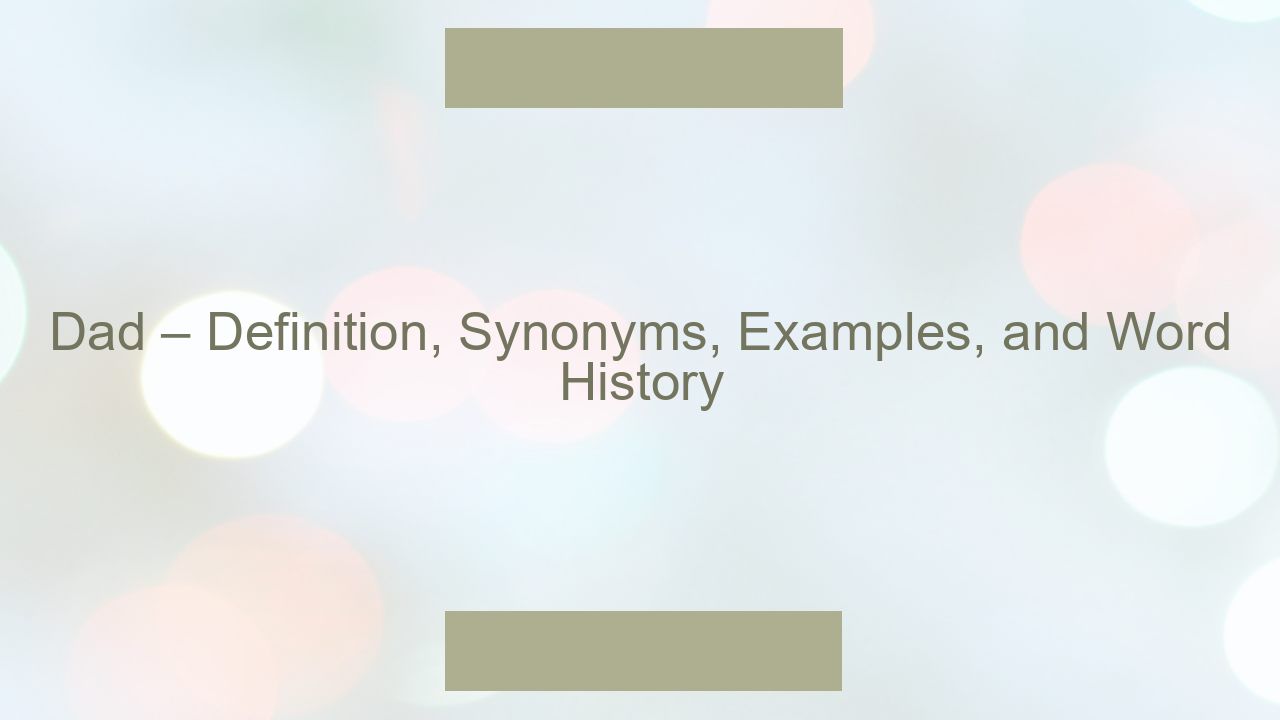The word “dad” is a common and affectionate term in the English language, often used to refer to one’s father. It carries a sense of familiarity and warmth, making it a staple in everyday conversations across cultures. Understanding the meaning and usage of “dad” can help in both casual and formal communication.
Definition (Meaning)
“Dad” is an informal term for father, used to address or refer to one’s male parent. It reflects a personal and emotional connection, often implying closeness or affection.
Synonyms
Some common synonyms for “dad” include father, papa, pop, daddy, and pa. These terms may vary in formality or regional usage but generally convey the same meaning.
Examples of dad in a Sentence
- My dad taught me how to ride a bike when I was five years old.
- I’m planning a surprise birthday party for my dad this weekend.
- Every Sunday, dad cooks his famous pancakes for the whole family.
Word History
The word “dad” has origins dating back to the 16th century, likely derived from the Welsh word “tad,” meaning father. It is believed to have evolved from childlike babbling sounds, as many early words for parents mimic the simple syllables babies first utter. Over time, “dad” became a widely accepted informal term in English-speaking regions.
